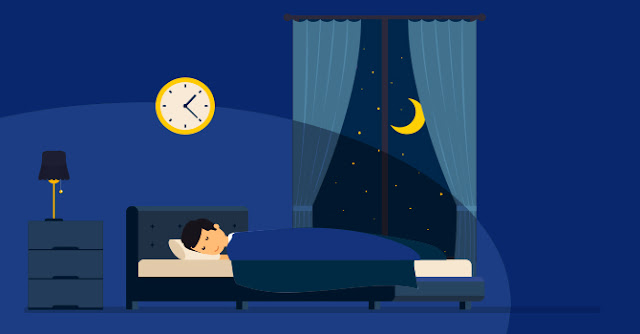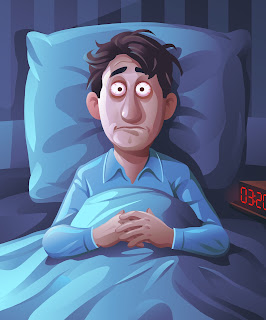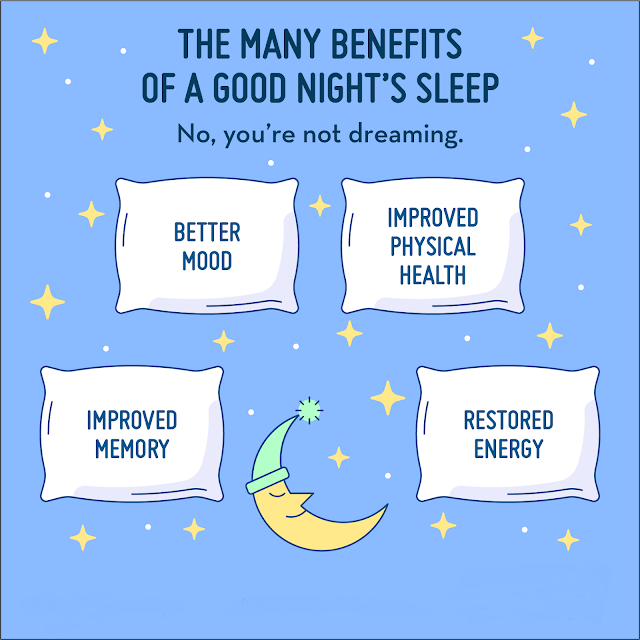How to Improve Your Sleep Cycle
Getting a good night's sleep is essential for our overall health and well-being. However, for many people, getting a restful night's sleep can be challenging. Factors such as stress, caffeine consumption, and a busy lifestyle can all contribute to poor sleep quality. The good news is that there are several strategies you can implement to improve your sleep. Here are some tips to help you get a better night's sleep:
1- Establish a regular sleep schedule:
Going to bed and waking up at the same time every day helps regulate your body's internal clock, making it easier to fall asleep and wake up in the morning. Aim for seven to eight hours of sleep each night.2- Create a relaxing bedtime routine:
A bedtime routine can help signal to your body that it's time to wind down and prepare for sleep. Consider taking a warm bath, practicing yoga or stretching, reading a book, or listening to calming music.3- Create a comfortable sleep environment:
Your bedroom should be a peaceful, comfortable place that promotes restful sleep. Consider investing in comfortable bedding, pillows, and a supportive mattress. Make sure your room is cool, dark, and quiet, and remove any distractions like televisions or electronic devices.4- Avoid caffeine, nicotine, and alcohol:
These substances can interfere with your sleep quality, making it harder to fall asleep and stay asleep. Aim to avoid caffeine and nicotine for at least four to six hours before bed, and limit alcohol consumption to one or two drinks earlier in the evening.5- Exercise regularly:
Regular physical activity can help improve sleep quality, but try to avoid exercising too close to bedtime. Aim for at least 30 minutes of moderate exercise most days of the week.6- Limit daytime naps:
Napping during the day can interfere with your body's natural sleep cycle, making it harder to fall asleep at night. If you need to nap, try to limit it to no more than 20-30 minutes.7- Manage stress:
Stress can make it difficult to fall asleep and stay asleep. Consider incorporating relaxation techniques like deep breathing exercises or meditation into your daily routine. Practicing good time management and prioritizing self-care can also help reduce stress levels.8- Avoid large meals before bedtime:
Eating a heavy meal before bed can cause discomfort and indigestion, making it harder to fall asleep. Aim to finish eating at least two to three hours before bedtime.9- Avoid using electronic devices in bed:
The blue light emitted by electronic devices like phones, tablets, and laptops can interfere with your body's production of melatonin, a hormone that helps regulate sleep. Consider turning off electronic devices at least an hour before bedtime.10- Seek professional help if needed:
If you continue to experience difficulty sleeping despite implementing these strategies, consider seeking professional help. Your doctor or a sleep specialist can help diagnose any underlying sleep disorders and recommend appropriate treatment options.Improving your sleep quality can have a significant impact on your overall health and well-being. By implementing these strategies, you can create a sleep-friendly environment that promotes restful, rejuvenating sleep. Remember, good sleep habits take time to develop, so be patient and persistent in your efforts to improve your sleep.
DAMAGE CAUSED BY DISTURBED SLEEP CYCLE
Disturbed sleep cycles can have a significant impact on both your physical and mental health. Here are some potential consequences of poor sleep:
Increased risk of chronic health conditions:
Poor sleep has been linked to a higher risk of developing chronic health conditions such as diabetes, heart disease, and obesity. Sleep disturbances can also increase inflammation in the body, which is a contributing factor to many chronic diseases.Impaired cognitive function:
Lack of sleep can impair cognitive function, including memory, concentration, and decision-making. This can affect work performance, academic performance, and daily activities.Mood disorders:
Poor sleep has been linked to an increased risk of depression, anxiety, and other mood disorders. Sleep disturbances can also exacerbate symptoms in individuals with pre-existing mental health conditions.Increased risk of accidents:
Sleep deprivation can impair reaction time, judgment, and coordination, increasing the risk of accidents while driving or operating machinery.Weakened immune system:
Lack of sleep can weaken the immune system, making it more difficult for the body to fight off infections and illnesses.Hormonal imbalances:
Poor sleep can disrupt the body's production of hormones, including those that regulate appetite, metabolism, and stress. This can lead to weight gain, increased stress levels, and other health issues.Increased pain sensitivity:
Poor sleep can increase sensitivity to pain, making chronic pain conditions more difficult to manage.Overall, disturbed sleep cycles can have a significant impact on your health and quality of life. It's important to prioritize good sleep habits and seek professional help if you continue to experience sleep disturbances despite making changes to your routine.
BENEFITS OF A GOOD SLEEP CYCLE
Establishing and maintaining a good sleep cycle can have numerous benefits for your overall health and well-being. Here are some potential advantages of getting adequate and restful sleep:
Improved cognitive function:
Getting enough sleep can help improve memory, concentration, and cognitive function. This can enhance your ability to learn, retain information, and perform tasks effectively.Better mood and emotional regulation:
Adequate sleep can help regulate emotions, reduce stress levels, and improve overall mood. Good sleep has been linked to a reduced risk of depression, anxiety, and other mood disorders.Increased physical performance:
Restful sleep can help increase physical performance and stamina, making it easier to engage in physical activity and exercise.Reduced risk of chronic health conditions:
Good sleep habits can help reduce the risk of developing chronic health conditions such as diabetes, heart disease, and obesity. Restful sleep can also lower inflammation in the body, which is linked to many chronic diseases.Improved immune function:
Adequate sleep can boost the immune system, making it easier for the body to fight off infections and illnesses.Better weight management:
Sleep has been linked to hormones that regulate appetite and metabolism. Good sleep habits can help regulate these hormones, making it easier to maintain a healthy weight.Lower risk of accidents:
Restful sleep can help improve reaction time, judgment, and coordination, reducing the risk of accidents while driving or operating machinery.Better skin health:
Restful sleep can help improve skin health, reducing the appearance of fine lines, wrinkles, and dark circles under the eyes.Overall, good sleep habits can have a significant impact on your overall health and well-being. By prioritizing adequate and restful sleep, you can improve cognitive function, regulate emotions, reduce stress, and reduce the risk of many chronic health conditions.










0 Comments